Inclusive Mosques in Indonesia
Tempo reports on several inclusive mosques for its 2025 Idul Fitri holiday edition. These are mosques which are friendly and provide broad benefits to society.
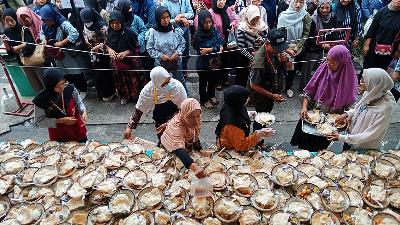
Tempo reports on several inclusive mosques for its 2025 Idul Fitri holiday edition. These are mosques which are friendly and provide broad benefits to society.
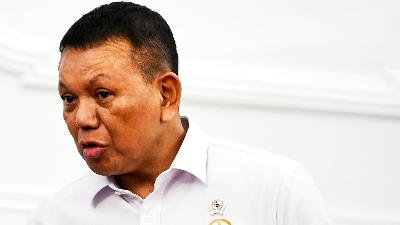
Deputy State Secretariat Minister Bambang Eko Suhariyanto explains the revision of the Indonesian Military Law, which is perceived as reinstating the military’s dual function.
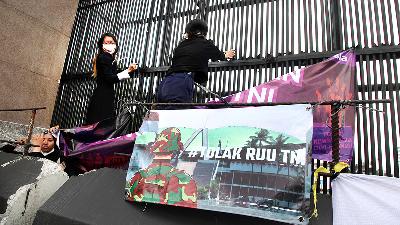
Civil society groups across various regions strongly oppose the revision of the Indonesian Military Law. The demonstrations are marked by intimidation and counterprotests.
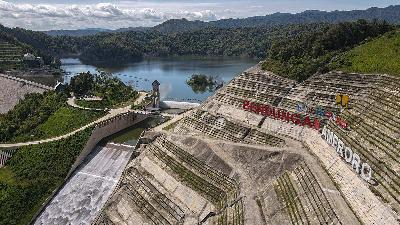
Indra Karya has been making profits over the past few years. Its construction consulting business remains relatively lucrative albeit with a modest growth margin.
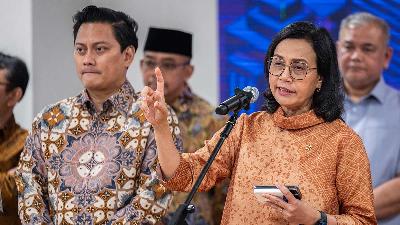
Two state-owned enterprises are set to enter the rice and fisheries business, with government capital injections on the horizon.
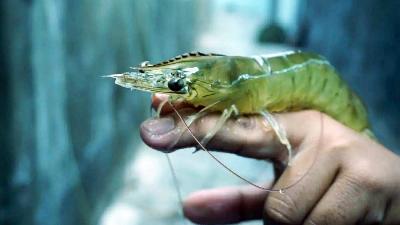
Products from Indonesia’s shrimp farms are currently considered as mere substitute for the premium shrimp products from Ecuador, India, and Vietnam.

The government’s plan to hand out concessions on conservation forests contradicts the target of lowering emission. Is this an attempt at greenwashing?

Negative sentiment is dominating Indonesia’s financial market. A major financial crisis is imminent if there is no change in government policy.

The KPK must arrest Harun Masiku after detaining PDI-P Secretary-General Hasto Kristiyanto. This could lead to the solving of other major cases.
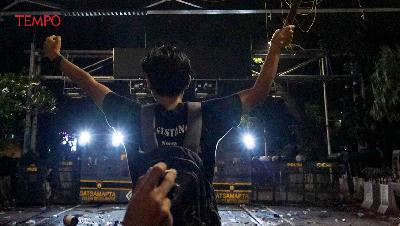
The ‘Dark Indonesia’ demonstrations are a warning for Indonesia to not collapse into destruction.
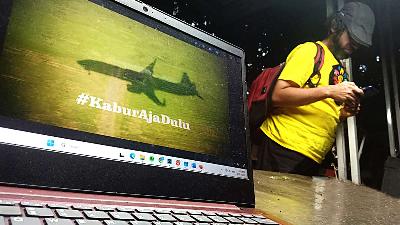
The hashtag #KaburAjaDulu has appeared since 2023. The movement is growing traction due to Indonesians’ dissatisfaction in the Prabowo administration.
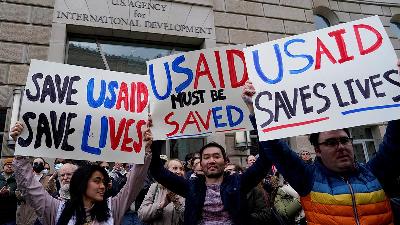
Several government programs come to a standstill after the United States’ decision to freeze USAID. It is necessary to find alternative donors.
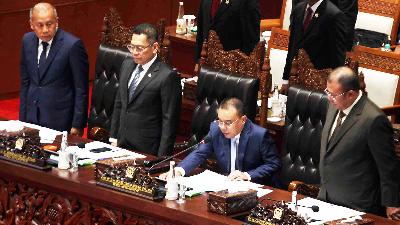
The revision of the DPR’s Code of Conduct is suspected to be used to remove several officials. Constitutional Court judges and the Bank Indonesia Governor are suspected to be the targets.
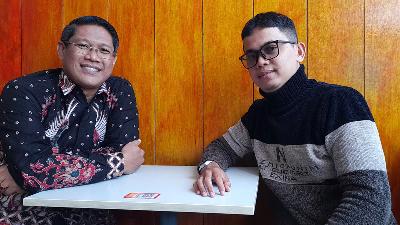
Kohod village head Arsin claims documents and his signature were forged to obtain a land certificates for the area surrounding the barrier in the sea.

Prabowo’s carbon capture and storage campaign is dominated by business interests, rather than climate crisis mitigation.

Several business figures are part of Prabowo Subianto’s inner circle, resembling the Benteng Program, which once granted privileges to indigenous entrepreneurs.

The gap between Prabowo’s ambition and reality leads to policy inconsistencies.
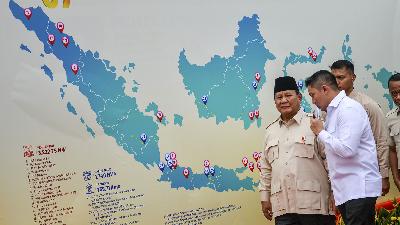
President Prabowo has four trusted individuals who have been conducting political maneuvers during his first 100 days in office.

Social Affairs Minister Saifullah Yusuf explains social assistance as a pillar of public satisfaction in the first 100 days of Prabowo’s cabinet.

Universities must reject the plan to share out mining permits in order to maintain their institutional independence.
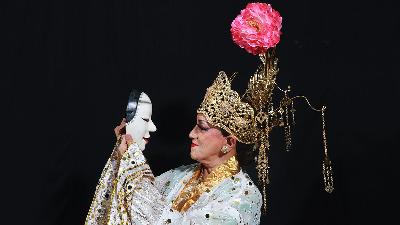
Didik Nini Thowok combines Yogyakarta’s classical dance with Japanese noh in Bedhaya Hagoromo. It is a result of a long study since 2000.
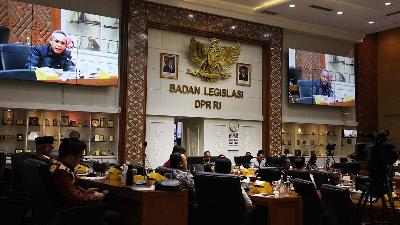
President Prabowo ordered a revision of the Mining Law that will allow the government to issue mining permits to campuses, allegedly to curb criticism.

It is predicted that the government’s target of 8 percent economic growth this year will be difficult to achieve. There are many policy inconsistencies.
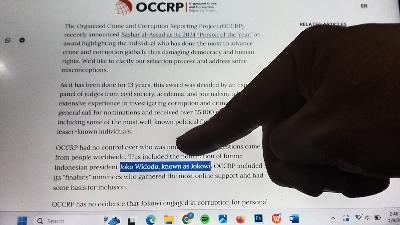
The OCCRP is bombarded by Jokowi supporters after releasing the 2024 corruption figure finalists list. Tempo is wrongly implicated.
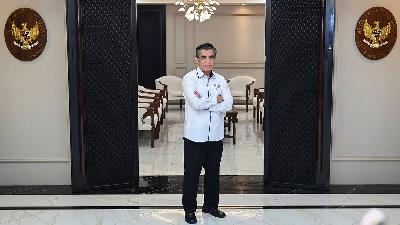
Manpower Minister Yassierli explains the projections for the labor sector in 2025 and the decision to increase the minimum wage.

Bank Indonesia’s aggressive intervention failed to support the rupiah. Indonesia’s macroeconomic management turned imprudent.

PGN’s gas supply for industrial customers fell sharply this year, resulting from poor management of the energy and gas business.
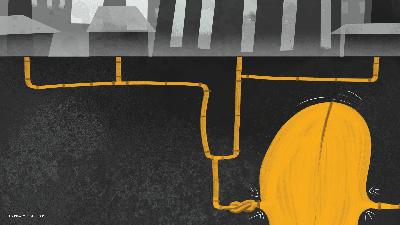
The gas supply from the Corridor Block pipeline plummets. Gas-using industries in Java and Sumatra face rising costs.

The Batanghari River is becoming increasingly polluted from illegal mining. This is a result of corruption and policies that ignore the environmental carrying capacity.

Illegal mining exacerbates the critical condition of the upstream Batanghari River Basin Area (DAS). The fraudulent practices involve many actors.

The coming year, 2025, poses significant risks to Indonesia. The government and Bank Indonesia are exacerbating the situation by adopting the risky policy of debt monetization.

Prabowo Subianto refused a demand from the Ridwan Kamil-Suswono pair to challenge the Jakarta gubernatorial election results. Signs of divergence with Jokowi.
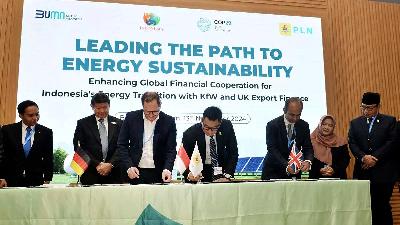
The funding needed for energy transition is difficult to fulfill. The JETP scheme is stalled, and alternative funding remains elusive.

The JETP energy transition program is at a standstill. Captive power plants hinder the preparation of investment plan documents.

Housing and Settlement Minister Maruarar Sirait on the three million homes project, and his relationships with Jokowi and Prabowo.
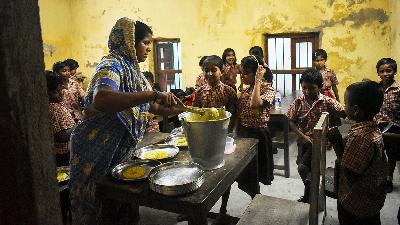
Indonesia still lags behind other countries that already implemented free school lunch programs.

A subsidiary of the peer-to-peer lending platform KoinWorks falls victim to an alleged fraud, resulting in a loss of Rp365 billion. Lenders are now threatening legal action.

Readers’ letters from three million houses provision to suggestion that officials be open to criticism.
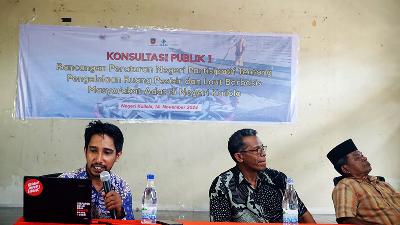
The people of Kailolo draft regulations for the enforcement of marine sasi, aimed at improving coral reefs in their area.
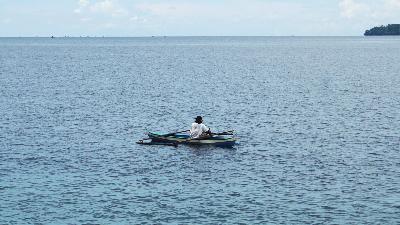
In Maluku, the sasi tradition is also applied to various natural resources to ensure their sustainability and quality.
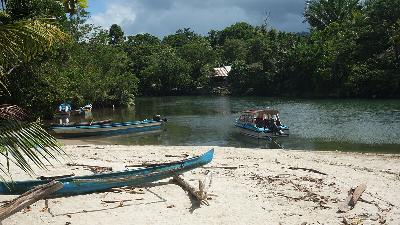
Amid rampant fish poaching in Indonesian waters, traditional communities in Maluku enforce sasi, a practice that protects the seas and coasts.

The government writes off non-performing loans of fishermen and small business owners. Detailed criteria can prevent moral hazards.

Hashim Djojohadikusumo is leading the Indonesian delegation at the climate change conference COP29 in Azerbaijan. But he is more a representative of corporate interests.
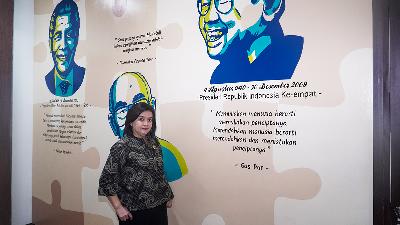
National Commission on Human Rights (Komnas HAM) Chair Atnike Nova Sigiro on human rights enforcement in the Prabowo Subianto era.
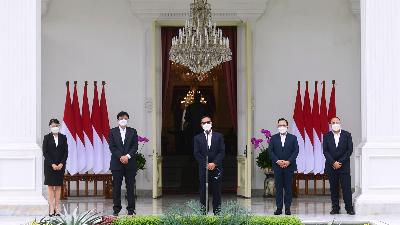
The Indonesia Investment Authority is set to merge with Danantara, but it still fails to optimize investments and faces ongoing issues with foreign investor confidence.

Judicial Commission Chair Amzulian Rifai on the corruption in judicial institution involving judges.
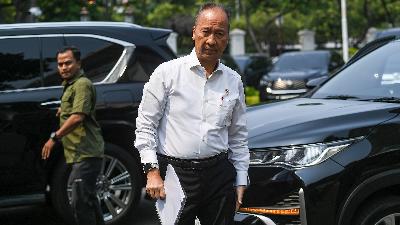
Interviews with Industry Minister Agus Gumiwang Kartasasmita and Sritex President Commissioner Iwan Setiawan Lukminto on the company’s bailout.
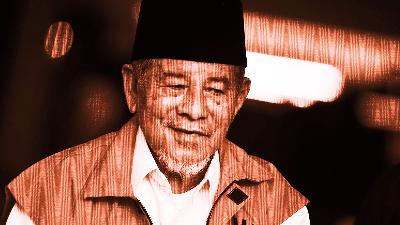
The term “Medan Block” emerged during the trial of former North Maluku Governor, Abdul Gani Kasuba. Medan Block is believed to refer to pre-allocated nickel mining concessions in Halmahera.
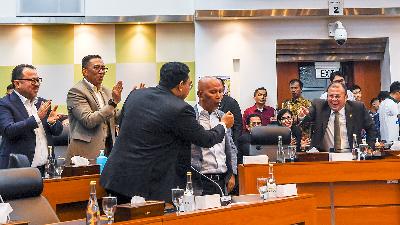
The PDI-P received the most positions as leaders of the DPR working bodies. Surya Paloh met with Bahlil Lahadalia to discuss the allocation of commission chairs.

Driven by corporate demand, helicopter business opportunities continue to grow. Operators are increasingly expanding their fleets.
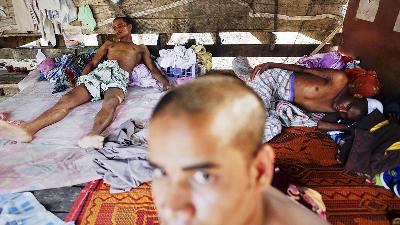
Rohingya refugees in Thailand, Malaysia, and the Philippines are treated differently than those in Indonesia.
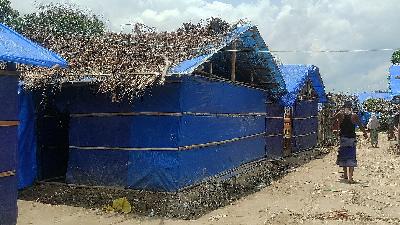
The increasingly overcrowded refugee camps demand improvements in the mechanisms for handling Rohingya refugees. The number of refugees continues to rise.

There is an increasingly real threat to Indonesia’s biodiversity. It cannot be overcome through empty slogans at international forums.
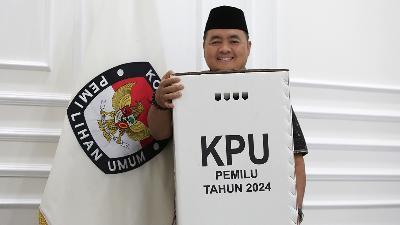
KPU Chair Mochammad Afifuddin on turbulence within his institution following the dismissal of Hasyim Asy’ari, and the Constitutional Court’s decision on the regional head elections.

The KPK uncovered alleged embezzlement of the Taspen pension fund involving Sinarmas Sekuritas. The result of poor supervision by the OJK.
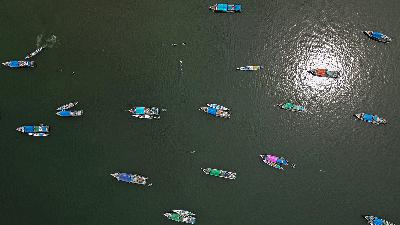
The family members of some ministers enter the fishery business. Other problems, such as the activity of illegal foreign vessels and the abuse of crew members, still prevail.

Explanations from State Secretary Minister Pratikno and Maritime Affairs and Fisheries Ministry on fishery business and the case of illegal ships in eastern Indonesia.
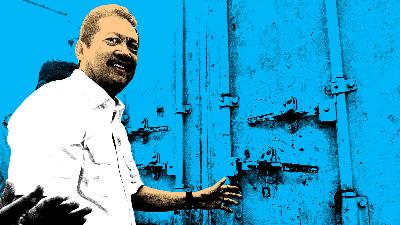
Minister Sakti Wahyu Trenggono revives a shutdown port. There is indication that the minister’s son is involved in the fisheries business.
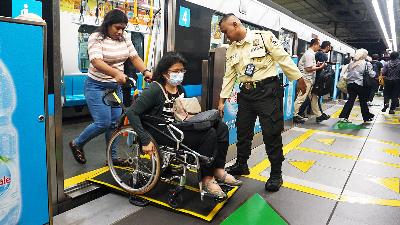
Jakarta is striving to provide inclusive transportation, but challenges remain, from funding issues to construction oversight.
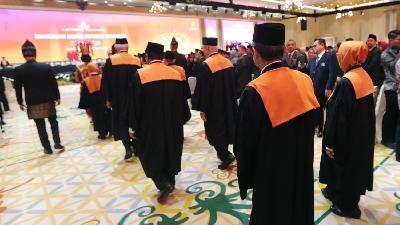
The race for the position of Chief Justice of the Supreme Court is heating up amid a flurry of allegations against certain candidates. There is suspicion of backing from business circles.
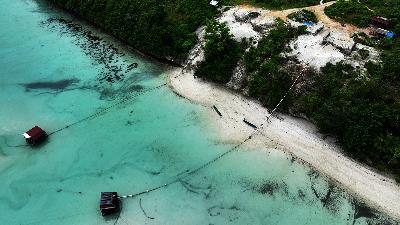
The plan to export sea sand faces obstacles from the Ministry of Energy and Mineral Resources. Oppositions also come from the DPR.
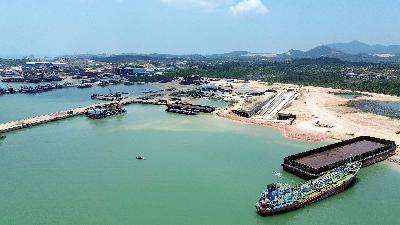
Dozens of companies are seeking permits to process marine sediment. They include businessmen, regional head candidates, and former cabinet ministers.

Indonesia is poised to fall into the middle-income trap. Only a few people enjoy the economy pie.

Prabowo Subianto is to form a cabinet comprising numerous ministers. This is made possible through a revision of the law.
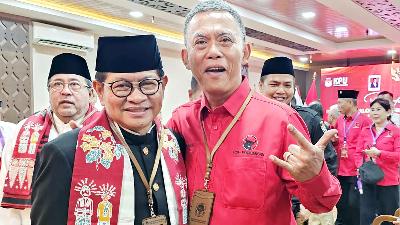
Two rivals in Jakarta’s upcoming regional elections are sharpening their winning strategies. There is a rift in the Indonesia Onward Coalition.

China’s economic crisis has the potential to spread around the world. It can kill industries and manufactured goods in many countries.

Foreign companies are urging President Joko Widodo to implement the power wheeling scheme. The private sector is pushing to hasten the energy transition.

Articles on power wheeling prevent the legislation of a New and Renewable Energy Bill. State electricity company PLN’s unique position could be left precarious.
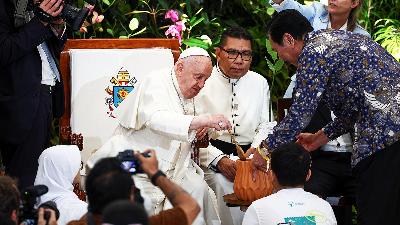
Indonesia and the Vatican enjoyed a good relationship long before the Pope’s visit. The Vatican reportedly helped Indonesia lobby the European Union.
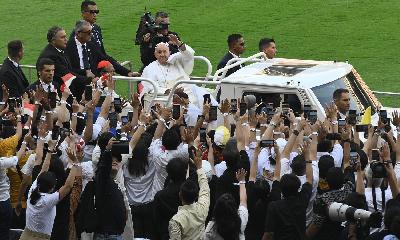
Catholics eagerly follow Pope Francis’ visit. Some are willing to spend a large sum of money to participate in the grand mass with the Pope.

Pope Francis received a warm welcome on his visit to Indonesia. Appearing with simplicity, he brought a mission of inter-faith dialogue.

The culinary businesses of Gibran Rakabuming and Kaesang Pangarep are fading. This seems to contradict their massive financing.
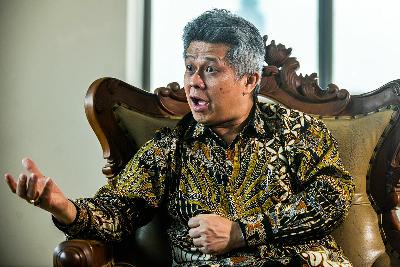
Chair of the Presidium of the Indonesian Bishops' Conference (KWI) Monsignor Antonius Subianto Bunjamin spoke about the preparations for Pope Francis’ visit.

The current account deficit threatens the Indonesian economy. The value of the rupiah could fall further, triggering an economic crisis.

Police act excessively in handling the demonstrations nationwide in support of the Constitutional Court decision. Where are the President and Vice President?

The transition to nuclear energy must be accelerated to meet the ever-increasing demand for electricity. It is more environmentally friendly.

The hijacking of the Constitutional Court’s decision on the Regional Head Election Law affects investor confidence, and political commotion hurts Prabowo’s government.
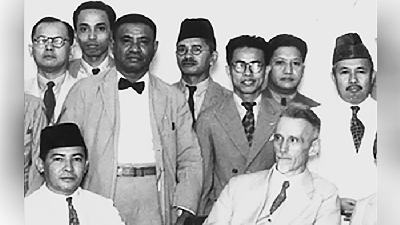
M.H. Thamrin was not the type of council member who would simply show up, sit down, remain silent, and collect a paycheck. The Tiger of Volksraad was highly militant and vocal in championing the people’s interests. His roar resonated as far as Europe and America.

The definition of “Indonesia” transcends old walls. Indonesians are anyone who considers it their homeland.

Tommy Hermawan Lo’s name emerges following the mention of Mr. T in online gambling that involves human trafficking case. He is a director at a casino management company.
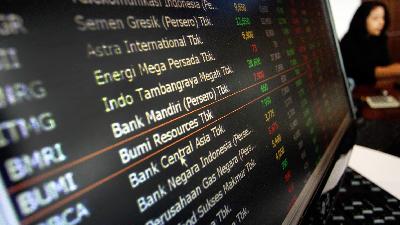
Banks regularly give credit to coal exporters who have deposits from foreign exchange proceeds of exports. It is prone to moral hazards.

Muhammadiyah cadres and administrators are divided in their response to the mining concession. There are whispers from the government and the entrepreneurs.

Government debt breached the limit. Markets await a signal of prudent fiscal management from the incoming president.
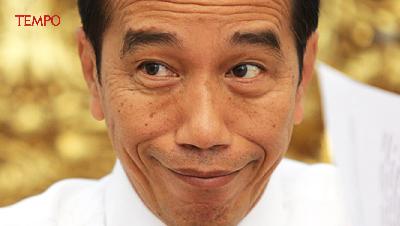
Jokowi was initially considered as a good person and a man of the people. But he broke the hopes of those who voted for him.
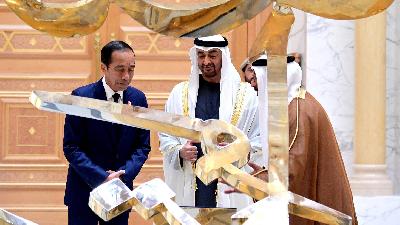
As the country attempts to mediate major issues, Indonesia’s foreign policy appears vibrant but lacks a strong foundation.
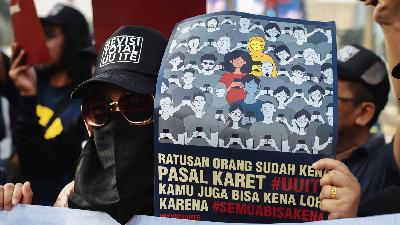
Various cases of hacking and freedom of expression violations are rampant during Jokowi’s presidency. Victims range from public figures to ordinary people.
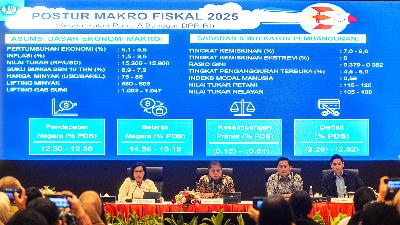
The 10 years of Joko Widodo’s administration leaves behind a mountain of debt. The management of the state budget shows minimal public participation and oversight.
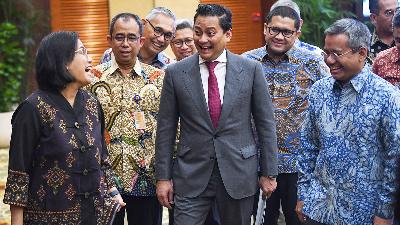
People close to Prabowo Subianto will be given strategic posts. Jokowi gives his blessing.
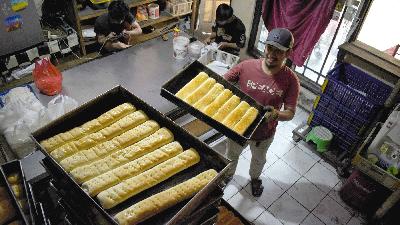
The presence of Okko and Aoka disturbs home-industry breads produced by micro, small and medium businesses.
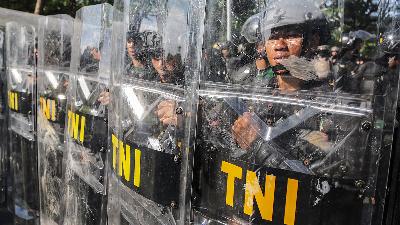
THE Indonesian Military proposes the removal of the article that prohibits military involvement in business activities in the revision of the TNI Law.

Indonesia is still one of the largest markets for global drugs. There is overlapping law enforcement from the BNN and the National Police.

Mass layoffs hit the textile industry. The latest import regulation triggered a flood of textile imports, causing the local industry to collapse.
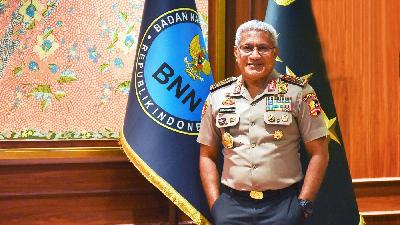
The BNN indicates Indonesia is a potential market for international drug networks. An interview with the Chief of the National Narcotics Agency (BNN), Comr. Gen. Marthinus Hukom.

International drug networks are invading Indonesia. The Sinaloa Cartel from Mexico delivered methamphetamine concealed in a ceramic package.

Over a dozen Lambung Mangkurat University lecturers are suspected of manipulating the requirements to apply for a professorship. They could be stripped of their titles.
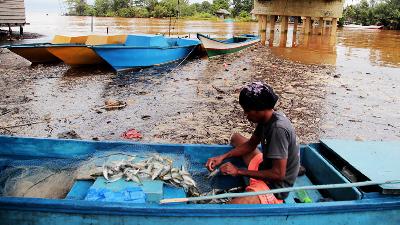
Indigenous people and villagers in Central Halmahera are facing clean water crisis. Community wells and river water are contaminated by nickel mining.

CEO of BCA, Jahja Setiaatmadja, explains the impacts of volatile exchange rates, rising government debt, and how the market awaits the new cabinet.

Rice production is predicted to drop dramatically this year, potentially leading to a rice crisis and triggering inflation and an economic crisis.

The KPK is investigating a case of land corruption in Rorotan, North Jakarta. The land was intended for the zero-down payment housing program. A go-cart racer is implicated in this case.

The guilty verdict for Karen Agustiawan shows that in Indonesia, even business decisions can easily lead to prosecution. This will have a long-term negative impact on our economy.

Two low-cost green cars (LCGC), the Toyota Calya and the Daihatsu Sigra, exhibited at the Gaikindo Indonesia International Auto Show last August at BSD City, South Tangerang, Banten, were the center of visitors' attention. At that event, 12,000 units of both types were sold. Astra Internasional CEO Prijono Sugiarto, 56, said the public had long been waiting for these two inexpensive and environmentally friendly automobiles. "The price, starting at Rp100 million, is affordable," he told Tempo.
In a report released last week, the Joint Indonesian Automotive Industry Association (Gaikindo) said by last August, the two 'sister' makes dominated total sales of 96,294 units in Indonesia. In the LCGC class, their market share was 33 percent.

There is no strong argument to oppose the Jakarta city government's plan to restore Kalijodo as a green zone. For decades, people have illegally occupied the area along the Angke river and the eastern flood canal in North Jakarta.
With all the road and building construction currently going on in the capital city, much of it affecting water catchments, any effort to create more green areas should be supported. The plan would achieve two objectives: Transform the location in question into a natural green habitat and, at the same time, cleanse the area of centuries-old dens of prostitution, gambling and bootlegging.

A young woman stood up after a waitress gave her the code. Lena, as we will call her, approached Tempo, who had visited Wisma Adem in Kalijodo, North Jakarta, two weeks ago. She left the corner of the caf, which looked more like a showroom, where Lena and nine other women sat and waited for guests to arrive. "Come, let's go downstairs," she said.
After going down a flight of stairs, the 22-year-old woman from Wonosobo, Central Java, walked to a 6-square-meter room. There were 10 other such rooms on the lower floor. The area was quiet, much different from the noisy caf. There was a mattress and two Sutra condoms in the room. Next to the bed were a sink, a faucet and a small bucket of water. The room felt hot even though a fan was running.

Kalijodo is once more unfurling tales of despair. Homes in the area have been flattened leaving enraged residents homeless.

Demanding illegal levies from newcomers tarnishes the image of Bali. Action must be taken against people taking advantage of traditional regulations.
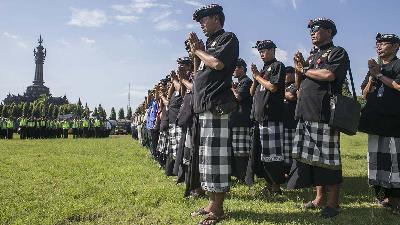
Customary village officials in Bali appoint pecalang to collect fees from visitors. The Corruption Eradication Commission and the Indonesian Ombudsman once intervened.
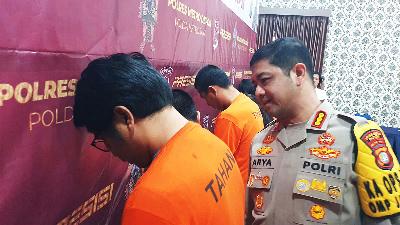
Police uncover baby trafficking syndicate operating in Java-Bali since 2023. Five babies were already sold.

The Holywings group is opening a new outlet in Bali. The new location is integrated with a hotel and swimming pool.
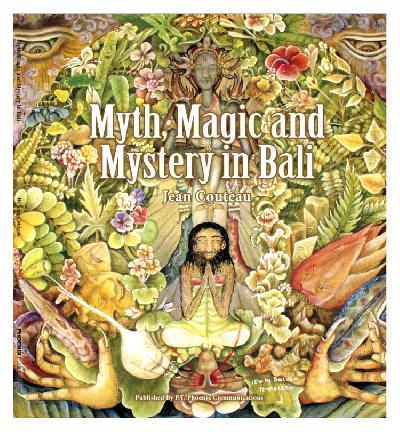
The vivid cover of the square-format book immediately catches one’s attention and the fact that the author, Jean Couteau, is not Balinese.

Nyoman Gunarsa (1944-2017) cared about painting Balinese ornaments and dancers the very things that brought him success. He also established museums to preserve both modern and traditional Balinese paintings.

Many people know who Ali Imron is. He got his battle and bomb-making training in Afghanistan from 1991 to 1996, and was one of the bombers of Paddy's Pub, Sari Club, and the United States Consulate in Denpasar on October 12, 2002. A total of 202 people died, and 209 more were injured as a result of the bombs detonated at those two famous clubs in Bali--the largest amount of casualties for a single terrorist attack in Indonesia.

A young Balinese has initiated an anti-tobacco community aimed at spreading awareness on the dangers of smoking among children. The community has 47 members.

Indonesia and the European Union (EU) held the second round of negotiations for a Comprehensive Economic Partnership Agreement (CEPA), on January 24-27 in Denpasar, Bali. Iman Pambagyo, director-general of international trade negotiation at the Ministry of Trade, said the negotiations would serve as the basis for future discussions.
"This round is a follow-up to synchronize perceptions of each participant's ambitions as well as to clarify draft suggestions from each delegation," he said, adding that more comprehensive negotiations are expected in the third round.

Indonesia and the European Union (EU) held the second round of negotiations for a Comprehensive Economic Partnership Agreement (CEPA), on January 24-27 in Denpasar, Bali. Iman Pambagyo, director-general of international trade negotiation at the Ministry of Trade, said the negotiations would serve as the basis for future discussions.
"This round is a follow-up to synchronize perceptions of each participant's ambitions as well as to clarify draft suggestions from each delegation," he said, adding that more comprehensive negotiations are expected in the third round.

Leonard Lueras has spent more than half his lifetime traveling across this "incredibly rich and great archipelago," as he described Indonesia, and publishing books about it.
"I'm one of the [few foreign] journalists or writers who actually live here," the 71-year-old American veteran journalist told Tempo English. He has lived in Bali for over 40 years.
Tempo English spent an afternoon chatting with Lueras in his uniquely designed and beautifully curated two-storey home at a villa compound in Sanur, Bali.

Stacks of planting medium called baglogs were neatly placed in a 150-meter square area, surrounded by walls made of woven bamboo. There were 6,000 baglogs in the room, each of them filled with white oyster mushrooms.
Ni Wayan Purnami Rusadi, 25, checked each growing medium, carefully picked mushrooms that were big enough, and put the harvested products in a basket. "These are all ready to be sold," she told Tempo English at her home in the Peguyangan Kaja village near Denpasar, Bali, two weeks ago.

Deborah Gabinetti is quick, gregarious, and emotivean immediate presence as soon as she enters a room. Yet she gives the impression of someone who is used to listening and observing. She will stop in the middle of a story to check your reaction, is not afraid to let pauses linger, tilts her head at you when curious to know what your take is on a situation and persists until she receives an answer.
When Tempo called Balinale's hotline to inquire about the festival, it was Gabinetti who answered the call. "This is Deborah. The director of the festival. Yes, I'm picking up calls," she said, laughing heartily, when asked who was on the other end of the line.

All was quiet at the Royal Bali Beach Club Hotel, Sanur, Bali, on Thursday two weeks ago. Just four foreign visitors could be seen sunbathing by the pool. Even so, according to the receptionist, all 32 rooms were occupied. "Only Royal Bali members can stay here," said the woman. But that turned out to be a false statement, as even non-Royal Bali members could be squeezed in.
Today, 12 expatriates are suing Permata Bahari, a hotel marketing company, and Royal Karma Development, the building owner. They are demanding that the two companies pay some US$76,000 in compensation plus Rp10 billion. "As long as they've been members, they've never been able to enjoy their rights," said Sylvia Maladi, the plaintiffs' attorney, last week.

The 6th Ministerial Conference on the Bali Process, held in Nusa Dua, Bali, on March 22-23 and co-chaired by Foreign Minister Retno Marsudi and her Australian counterpart Julie Bishop, resulted in a regional mechanism on irregular migration. The agreement, called the Bali Declaration of People Smuggling, Trafficking in Person and Related Transnational Crimes, reflects the commitment to take swift and concrete action when these issues arise.
"Through this mechanism, the co-chairs can build communication with the relevant countries including the country of origin, transit country and destination country, in case of any emergency," said Retno in an official statement.

Browsing the wine shelves of Bali reveals local brands as well as imports at fantastic prices. Hatten and Sababay Winery are the most common Indonesian varieties, found in beverage shops, hotels and restaurants, including Ngurah Rai Airport in Denpasar, Bali's provincial capital. "They're usually bought as souvenirs," an assistant at Puri Garden Wine Shop said. They are also available at Bebek Bengil Restaurant in Ubud and Vin+ in Seminyak.
Local wines are emerging in Bali. The pioneer was Hatten Wines, founded by Ida Bagus Rai Budarsa in 1992 but only effectively engaged in market distribution in 1994. After graduating with from Brawijaya University in Malang, East Java, in 1990, Rai was asked by his father to continue the family business of Dewi Sri Bali brem, a drink made from fermented rice. "It's the responsibility of the oldest son," Rai said. The company, set up in 1968, could produce 5,000 liters of brem per month.

Two jalak bali birds (starlingLeucopsar rothschildi) were perched on a cashew tree in a garden in Ped village, Nusa Penida, Bali. Though just 15 centimeters tall, the birds could be clearly seen in the dense foliage. Their clean white feathers contrasted with the green leaves. Black strips adorned their wings and tails. Their blue eyes seemed like those of a mask. "The jalak bali birds are hunted for their beautiful feathers. They can fetch Rp50 million a bird," said Sudariyanto, a researcher at Gajah Mada University.
After vanishing in 2004, the jalak bali has returned to Nusa Penida, a 200-square-kilometer island southeast of Bali. Finding them can be difficult, the way they hide among the trees, but in Ped the birds are known to frequent Puseh Temple. The temple stands on a hill from which one can see half of Nusa Penida. Jero Mangku Sujana, who lives 100 meters from the temple, said he can spot the jalak at the temple from 5am to 9am.

Bali Holds International Cocoa Festival
Balis Jembrana regency hosted a festival for cocoa farmers from various countries from August 27-30. Present at the event were farmers from Aceh, Lampung, Sulawesi, West and East Nusa Tenggara and Papua. Farmers also came from Vietnam, Timor-Leste and the Philippines.

Unlike other teenagers in Denpasar, Bali, Tami Grende will not be found at the popular franchise outlets many of them frequent after school. As soon as the last bell rings at 3pm, the 17-year-old girl dashes home to prepare for yet another routine: practicing tennis strokes with her father, Olivier Grende. They go until 7pm.
The tennis court Tami and her father use lies just 200 meters from their house in Suwung, Denpasar. In the same field, Tami usually begins her day under the red morning sun with jogging and agility drills. Then she leaves for school. Tami has been doing this since she was eight.

Pigs' squeals pierced the air at I Wayan Darmawan's ranch. About 80 of the animals were lined up in wooden pens at his place in Kampung Pengotan, Bangli regency, Bali. At first glance, the pens looked different from others in the area. A large cement dome was protruding from the ground near it. The object was a digester, a device that produces gas from animal waste. It has been up and running for eight months. "I use this gas to cook and heat water," he said.
In the past, Darmawan would buy seven three-kilogram tanks of liquid petroleum gas (LPG) at a time for the kitchen of his seven-member family. He paid Rp16,000 per tank. In addition saving him money on gas, the digester also provides him with organic liquid, which he uses on his orange grove. "My monthly costs have gone way down," he told Tempo.

Several high schools in Bali have banned the Islamic headscarf. The government is preparing to issue a ministerial regulation.

I Nyoman Miska Karyana in Denpasar cultivates various types of original plants of Bali. After ten years of efforts, his garden contains 30 types of unique plants, now used to decorate hotels and villas in Bali.

With very little fanfare in the national press, the Ubud Writers & Readers Festival celebrated its 10th gathering last week in Bali, with a lineup of 174 writers from as far afield as Finland, Zimbabwe, Lebanon and Mexico, plus 16 of Indonesia's most exciting young writers.

Jero Wacik ignored the outcome of an economics coordination meeting. Gas from the Husky-CNOOC field will still be diverted to Bali.

I Made Taro finds, catalogs and teaches ancient Balinese games. He's also invented some of his own.

Bali is known for its deep commitment to the arts. Yet, a number of classical works in the nation's only majority Hindu population face extinction, outnumbered by instant commercial art in the interest of profits. A number of concerned cultural experts are now trying to conserve these classical art traditions, and pass on their talent and experience. Fortunately, the endeavor is finding support among an enthusiastic young generation. Today, they are regarded as the vanguards of art conservation in Bali. Tempo English reports on their activities in Bali, in commemoration of National Children's Day, July 3.

A tsunami could hit Bali's north and south. Mitigation efforts along the northern coast are still minimal.

Price increases for land and property in Bali have been extraordinary over the past two years. Many foreign investors are opting for underhanded methods.

An alcohol trade both old and new is flourishing in Bali.

Bali-based, American-born writer Bill Dalton, who has lived in Indonesia for more than four decades, and his Indonesian wife decided to convert to Bali Hinduism last year. The following is a description of his unique experience.

Ever since the eccentric Dutch painter W.O.J. Nieuwenkamp first toured the Island of the Gods by bicycle in 1906immortalized on a stone bas-relief in a temple at Kubutambahan in north Balicycling has been a popular outdoor recreation across the island.

The term subak has been known since the 11th century. Balinese communities, as well as the colonial Dutch and the Indonesian government have helped shaped today's subak over the years.

Last March, Bali hosted a major Food, Hotel and Tourism exhibition. The island of the gods seems limitless when it comes to innovations to lure visitors. One unique creation featured at the exhibition was the non-grape wine. The raw materials are extracted from fruits and other food items, like the salak, ginger, sweet potatoes and cashew nut. Most importantly, this unique Balinese wine has improved the livelihood of local farmers. What are its future prospects? Tempo English reports from Bali.

The Balinese Art of Ogoh-Ogoh documents one of Balis newest and most unique art formsthe Ogoh Ogoh.

A farmer cooperative in Baliem Valley succeeded in exporting coffee abroad, at the same time improving the welfare of local residents.

In his latest exhibition, Rio Helmi presents the ethnic beauty of today’s Bali through his eyes.

A BPPT expert earned a promotion by creating an electrical current stabilizer to help the flow of power from Java to Bali. His product costs far less compared to the German-made alternative.

A colony of street children in Badung, Bali, peddles fruits to cover family expenses. Their minimum access to education exposes them to exploitation.

The ban on screening Balibo recalls the 1975 deaths of five foreign journalists in East Timor. One witness of this incident, a former intelligence officer, believes the element of dramatization is inevitable, resulting in a fictional film featuring images of a brutal military.

The Indonesian Film Censorship Board banned the screening of the film Balibo at the 11th Jakarta International Film Festival, reasoning that the film might reopen old wounds.

A larger-than-life character is still referred to in Denmark as ‘the King of Bali.’

The authorities have not yet decided when to carry out the execution of those sentenced to death for the Bali Bombing. Here is a glimpse of their activities at Nusakambangan Prison.

Only five Bali Starlings remain in their wild habitat as last-ditch efforts are in full gear to save the endangered species.

Kepaon village is evidence that tolerance can be maintained for many years. Bali bombings once tore this tolerance apart.

Azahari made thorough preparations for the second Bali bombing. This was discovered in a document which fell into the hands of the police.

Tracing the performing arts in Bali from the religious background, through the learning, the actual performance, to what they mean in todays Bali.

There are no queues at the Bali airport and hotel occupancies are starting to decline.

At least 25 died and hundreds were injured as a result of the weekend bomb blast in Bali, again. President Yudhoyono had received reports of terrorism threats back in July.

An interesting part of Covarrubiass wanderings in Bali was his curiosity about the riddle of the leak, Balinese evil spirits.

His success in breaking open the Bali bombing network is likely to take Pastika on to a ministerial position. But he has yet to be contacted by the PDI-P.

President George Bush's brief stopover in Bali produced quite a hassle, but also some hopes and promises.

Allegations of money politics in Bali's recent gubernatorial election should be thoroughly investigated, particularly since the donor and the recipient have owned up to the fact.

The Regent of Buleleng faces opposition for approving a project in one of Bali's tourism zones.

Ali Imron has given his version of the Bali bombings. Many questions still remain unanswered, however.

The Chairman of the Indonesian Bank Restructuring Agency (IBRA) invited all tycoon debtors for face-to-face meetings in Bali. IBRA’s stern approach has changed to one of peace.

Hundreds perished in Bali, but cabinet members can only squabble over the tragedy. Has the government been slow in handling this?

The bombing tragedy in Bali has shaken Indonesia’s economy. Will this impact be temporary or long term?

BI governor Syahril Sabirin is finally in court over the Bank Bali corruption scandal. But will he be acquitted like those before him?

Villages in Bali are applying custom law to various trials of cases, but doesn’t that contradict state laws?

Gambling is now mushrooming again in Bali. Those who call themselves community figures now even approve of the long prohibited cockfights.
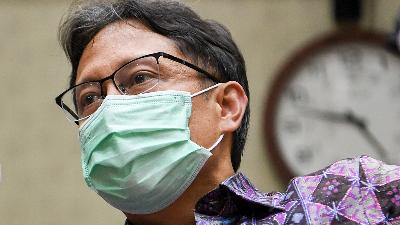
An interview with Health Minister Budi Gunadi Sadikin on the collapse of health system amid the Covid-19 second wave attack. Minister Budi also spoke about cabinet meetings held to acquire oxygen during a scarcity.

The polygamy regulation in the proposed Aceh qanun has triggered debate. This is a result of the vague regulations on special autonomy.

It was already late at night when Tempo arrived at Martinus's residence in Flores Island community of Rampasasa. Under the dim light of a solar-powered LED lamp, Petrus Antas, a tua tenoa Manggarai vernacular for a customary leaderexplained the poor living conditions of the indigenous Rampasasa pygmies. He sat surrounded by hamlet residents.
Having no ID cards, the residents do not have access to government aid programs like the People's Health Guarantee, or People's Temporary Direct Aid (BLSM). The hamlet is not reachable by public vehicles. The state electricity company PLN has promised to link the community to the electricity grid by 2014 but a year later, "nothing has happened," said Martinus as he pulled down the lamp cord to make the light brighter. But due to the many hours of cloudy skies the February day that Tempo visited, little solar energy was stored, and therefore the lamps dimmed again. Antas is the father of Rampasasa hamlet head, Martinus.

October 15 is International Hand-Washing Day, an event that is commemorated in Indonesia, particularly where the government is implementing sanitation projects. Around 70 million Indonesians reportedly still excrete their bodily waste not in the proper places, shamefully coming in third in the list of countries with such unhygienic habits, after China and India. Such a condition can lead to diarrhea, acute respiratory diseases and malaria. The government has set 2014 as the time when such unhygienic habits are eradicated in Indonesia. In some of the regions, local governments collaborating with NGOs have come up with creative projects to eradicate this unhygienic habit. Tempo English Edition looks at some of these projects in areas of Papua, West Nusa Tenggara, East Nusa Tenggara, South Sulawesi, and Nias.

An Urban Sustainable Development prize-winning architect completed construction of a playground in a densely populated alley in Bandung. The tiny playground brought about significant changes.

Some approve of polygamous marriage, while others categorize it as violence against women.

Pygmy elephants in the Kalimantan forests are different from elephants in Sumatra and other Asian countries. Malaysia is using mini-transmitters to carry out research.

Most respondents – male civil servants – reject Government Regulation No.10/1983 banning polygamy.
Independent journalism needs public support. By subscribing to Tempo, you will contribute to our ongoing efforts to produce accurate, in-depth and reliable information. We believe that you and everyone else can make all the right decisions if you receive correct and complete information. For this reason, since its establishment on March 6, 1971, Tempo has been and will always be committed to hard-hitting investigative journalism. For the public and the Republic.